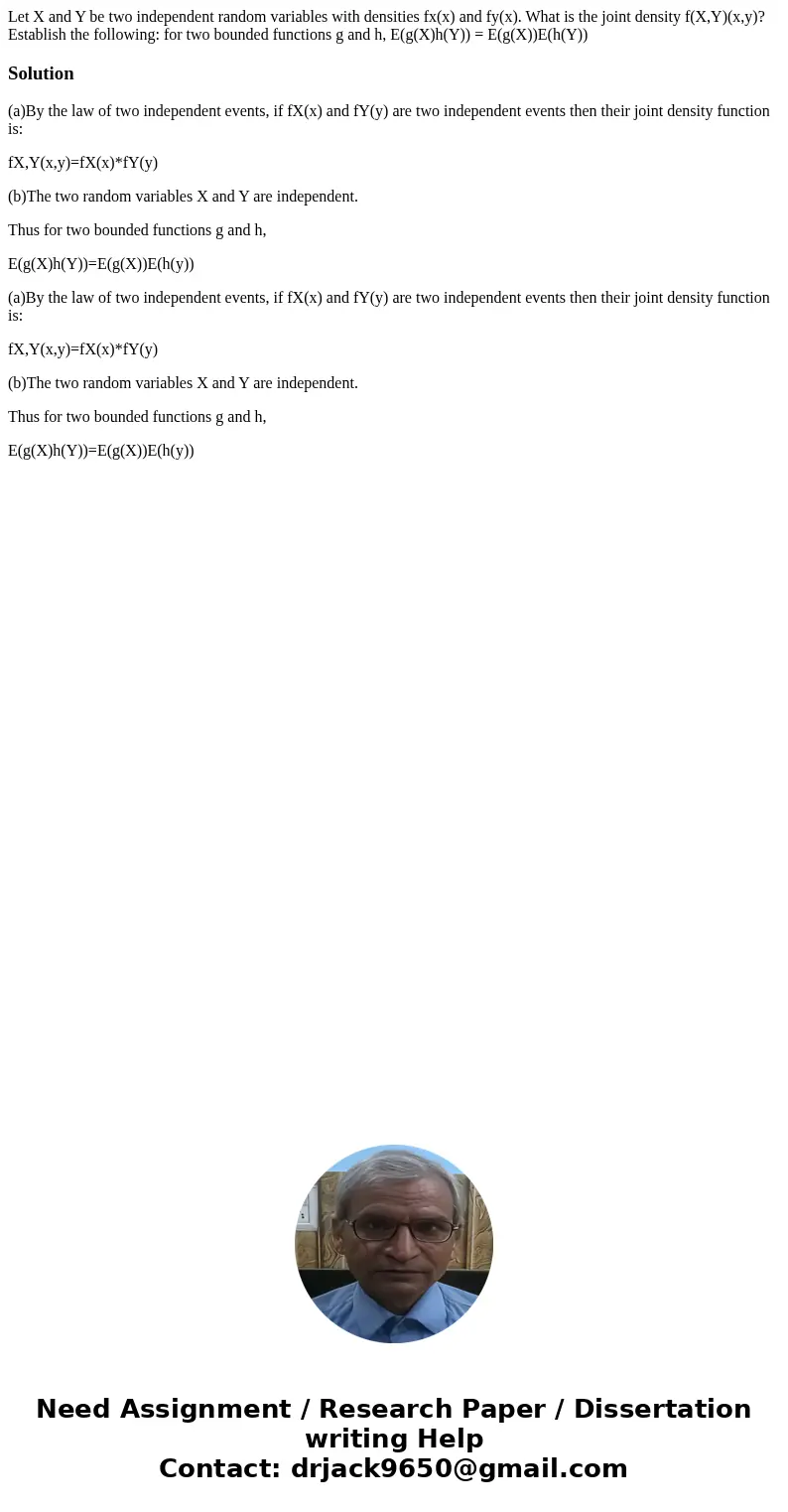Let X and Y be two independent random variables with densiti
Let X and Y be two independent random variables with densities fx(x) and fy(x). What is the joint density f(X,Y)(x,y)? Establish the following: for two bounded functions g and h, E(g(X)h(Y)) = E(g(X))E(h(Y))
Solution
(a)By the law of two independent events, if fX(x) and fY(y) are two independent events then their joint density function is:
fX,Y(x,y)=fX(x)*fY(y)
(b)The two random variables X and Y are independent.
Thus for two bounded functions g and h,
E(g(X)h(Y))=E(g(X))E(h(y))
(a)By the law of two independent events, if fX(x) and fY(y) are two independent events then their joint density function is:
fX,Y(x,y)=fX(x)*fY(y)
(b)The two random variables X and Y are independent.
Thus for two bounded functions g and h,
E(g(X)h(Y))=E(g(X))E(h(y))

 Homework Sourse
Homework Sourse